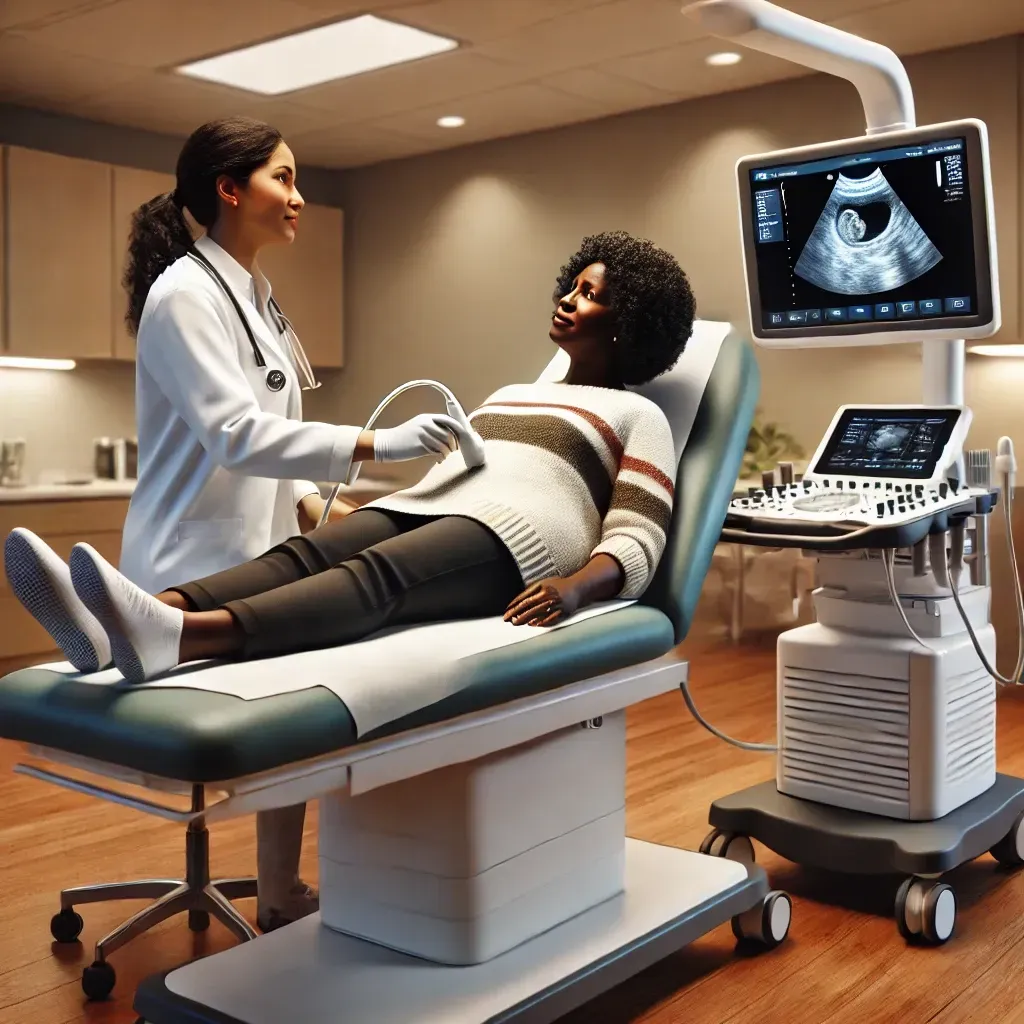
Seeing Is Believing: The Benefits of Ultrasound for Patients and Providers

Why Ultrasound is Your Best Friend in Fibroid Detection and Managementent Through Ultrasound
Why Ultrasound is Your Best Friend in Fibroid Detection and Management
At Atlanta Ultrasound, we know how important it is to maintain a healthy, vibrant life. That's why we're here to talk about a topic that affects many women but isn't always discussed openly: uterine fibroids. Whether you're experiencing symptoms or just want to stay informed, understanding the role of ultrasound in detecting and managing fibroids is crucial. Let's dive in, keeping things simple and straightforward.

What Are Fibroids?
Fibroids are non-cancerous growths that develop in or on a woman's uterus. While the causes of fibroids aren't completely understood, factors like hormones and genetics play a role. Many women with fibroids experience no symptoms at all, but for some, fibroids can cause noticeable, often severe symptoms like heavy menstrual bleeding, prolonged periods, pelvic pain, and frequent urination.

Detecting Fibroids with Ultrasound
Here at Atlanta Ultrasound, detecting fibroids starts with a simple, non-invasive ultrasound. Ultrasound uses sound waves to create images of your uterus, allowing us to see and measure any fibroids present. This method is safe, painless, and highly effective.
During the ultrasound, you'll lie down on a comfortable exam table, and a small device called a transducer will be passed over your lower abdomen. Some ultrasounds might be performed transvaginally to get a better view, which involves inserting a slim probe into the vagina. Both methods provide clear images that help us understand the size, location, and number of fibroids.
Managing Fibroids
If fibroids are found, the next steps depend on a variety of factors, including your symptoms, the fibroids' size, and your personal health goals. Here are some common management strategies:
Watchful Waiting: For fibroids that aren't causing symptoms, we might just monitor them over time. Many fibroids grow slowly or not at all.
Medication: Certain medications can help manage symptoms such as heavy menstrual bleeding and pelvic pain associated with fibroids.
Minimally Invasive Procedures: Techniques like MRI-guided focused ultrasound surgery or laparoscopic myomectomy allow doctors to remove fibroids without a major operation.
Surgery: In cases where fibroids are large or causing significant symptoms, surgical options such as a hysterectomy (removal of the uterus) may be considered.
Why Choose Atlanta Ultrasound?
At Atlanta Ultrasound, we pride ourselves on providing a warm, welcoming environment where you can feel comfortable discussing your health concerns. Our experienced team is here to guide you through each step, from initial screening to treatment options, with compassion and expertise.
For those seeking expert ultrasound services, Atlanta Ultrasound offers quick, efficient, and comprehensive scans. Our team of skilled professionals is dedicated to providing you with the clarity and care you need. Contact us today to schedule your ultrasound scan and take a decisive step towards understanding your health.
📍 Location: 333 Sandy Springs Circle, Suite 201, Atlanta, Georgia 30328
📞 Contact: 678-590-3300
🌐 Website: www.atlantaultrasound.com
Remember, you're not alone in this journey. Many women experience fibroids at some point in their lives, and we're here to help you manage your health with confidence and care. Let's keep the conversation going—your well-being is worth it!
Disclaimer: The content of this blog post, authored by a sonographer, is provided for educational and informational purposes only. It is not intended as medical advice, nor should it substitute for professional medical consultation, diagnosis, or treatment. Always seek the advice of your physician or other qualified health providers with any questions you may have regarding a medical condition or health concerns.
Do not disregard professional medical advice or delay seeking it based on the information presented here
